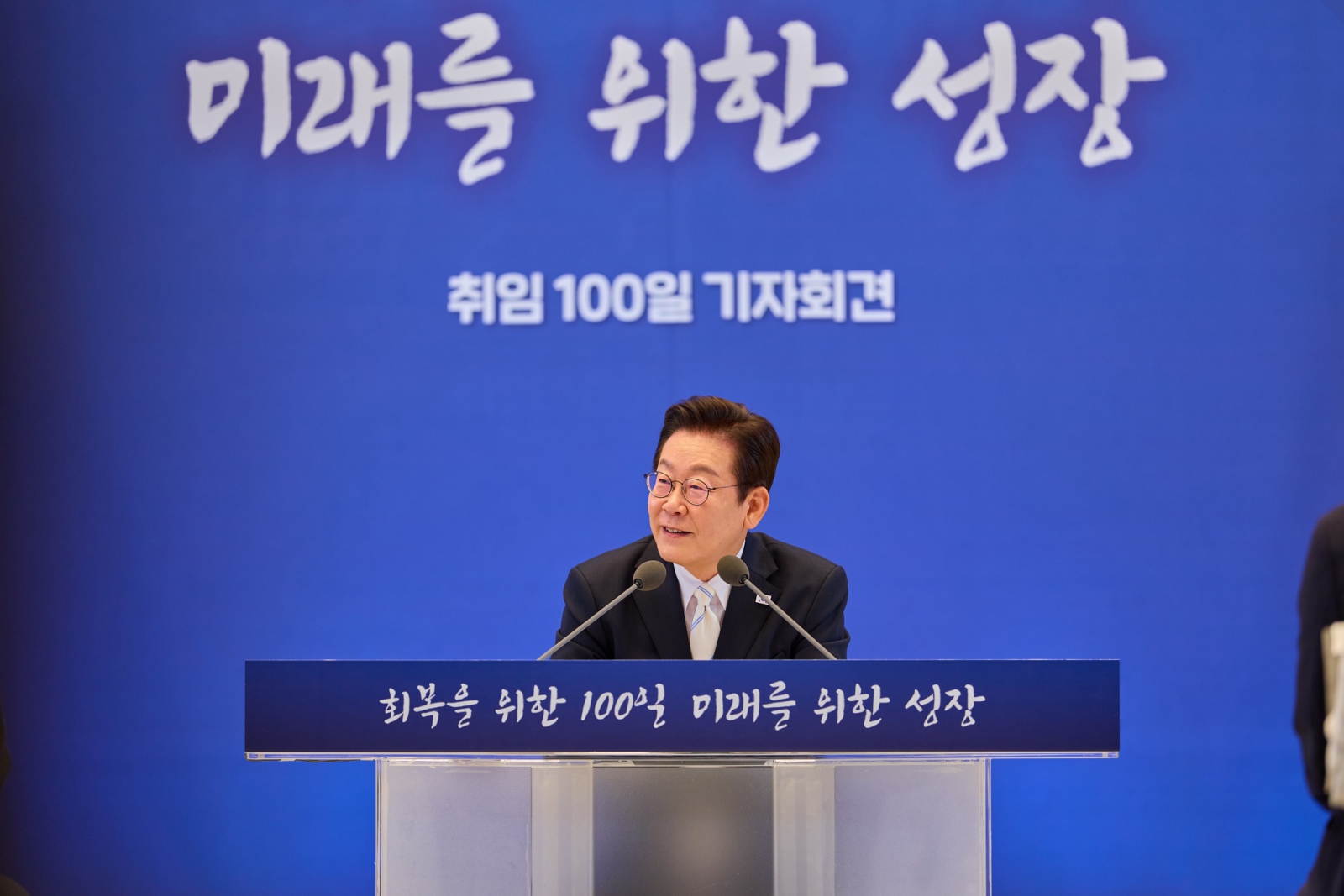
South Korean President Lee Jae-myung marks his first 100 days in office with a press briefing. (Photo: Goverment of Korea)
South Korean President Lee Jae-myung on Sept. 11 used his 100th-day press conference to reaffirm his push for renewable energy development, while hinting he would not support building new nuclear plants.
Addressing concerns that transferring energy policy to the Environment Ministry could lead to stricter regulations, Lee argued the move was aimed at making policy discussions more efficient.
President cites renewables as only feasible option
Lee said that constructing a nuclear reactor typically takes at least 15 years, while small modular reactor (SMR) technology remains unproven. By contrast, large-scale solar and wind projects can be developed within one to two years, making renewables the only feasible option to meet the country’s growing power demand.
The president stressed that existing and under-construction nuclear projects will continue, and aging reactors may have their operating lives extended if safety is ensured. However, he reiterated that South Korea’s long-term direction must be toward renewable energy. While Lee stopped short of explicitly ruling out new nuclear plants, his comments are widely seen as casting doubt on projects approved by the previous administration.
The Ministry of Trade, Industry and Energy (MOTIE) in February announced its 11th Basic Plan on Electricity Supply and Demand, which called for the introduction of SMRs before 2036 and the construction of two large nuclear units by 2038. A 12th plan is due next year, but industry observers expect it will exclude new nuclear projects.
The day before Lee’s press conference, Environment Minister Kim Seong-hwan had already signaled possible changes to nuclear power plans. In response, Korea Nuclear Society President Lee Ki-bok accused the government of disguising its intent to phase out nuclear power as “public debate,” warning that the country must prepare now for electricity needs 15 years ahead. He also noted that past nuclear projects were typically completed within five to six years, contradicting Lee’s 15-year timeline.
_04790182_(8506930230).jpg)
The Hanul Nuclear Power Plant in Uljin. (Photo: Wikimedia Commons)
Energy policy shift to Environment Ministry sparks business concerns
Lee’s remarks came as his administration announced a major organizational shift: transferring most of MOTIE’s energy policy functions to the Environment Ministry, which will be potentially renamed the Ministry of Climate, Energy and Environment.
Business groups have raised concerns that shifting energy policy from an industry-focused ministry to a climate-oriented one could tighten regulation and undermine competitiveness.
Lee countered that having one ministry handle both regulation and policy development would improve efficiency. Citing past cases where MOTIE overlooked the Environment Ministry’s concerns, such as subsidies for Chinese electric bus makers that hurt Korean firms. He argued that housing energy policy under one roof would allow faster responses to emerging challenges.
Source: Korea Times(1), (2), Business Korea
.jpg)

